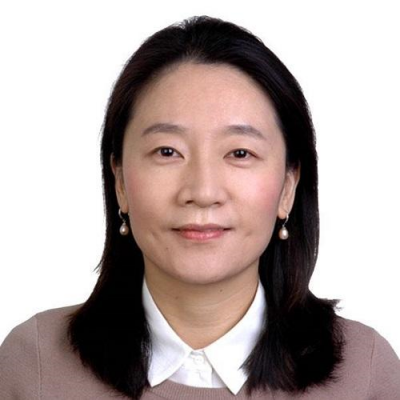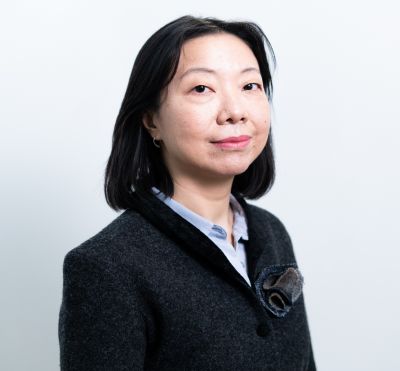Sustainability Panel
As sustainability becomes an increasingly important factor in the transportation sector, it also becomes a key factor influencing how we approach user interface solutions for transportation users. In this session, we will explore how emerging transportation models that are driven by sustainability outcomes are addressing customer interface issues, as well as exploring how sustainability features can be incorporated into the customer experience for traditional forms of mobility.
Paul Brest Hall
Tuesday, September 24, 14:00 ~ 15:00
Moderator: Adam Langton

Biography
Adam Langton is the Energy Services Manager for BMW of North America, LLC. In this role, Adam develops digital energy products related for BMW’s electric vehicles, including smart phone functionality, data tools, and fleet management services. Adam leads the development of BMW’s US smart charging program, which recently launched nationally, and manages BMW’s US renewable energy partnerships.
Prior to joining BMW, Adam had government positions at the state and federal level. At the California Public Utilities Commission, Adam supported California’s electric vehicle programs and helped implement California’s carbon cap-and-trade program. While in Washington DC, Adam worked for the U.S. Office of Management and Budget (OMB), evaluating budget and regulatory proposals for federal transportation programs. Adam is based at BMW’s Mountain View Tech Office in Silicon Valley.
Panelist: Peggy Wang

Biography
Dr. Pei (Peggy) Wang is a Research Engineer at California PATH, and has worked as an Assistant Research Engineer at UC Berkeley since 2017. She received her Ph.D. in Human Factors and Ergonomics from Tsinghua University, and formerly worked at General Motors China R&D as an HMI researcher. She has been involved with research in cross-cultural studies of in-vehicle speech systems, data analytic studies for Apple Carplay usage, and driving styles studies for automated vehicles.
Since her role began, Dr. Wang has led the human-factors team in PATH while conducting research projects funded by Caltrans, SB-1, and industrial consortiums. Her Human Factors research includes applying psychological and physiological principles to the design of systems, tasks, and environments in order to establish their successful and safe use. The focus of her research is to determine which aspects of road or traffic management devices that should be modified to improve driver performance and reduce unsafe behaviors. It is integral to shaping the design of road infrastructure and traffic management systems (e.g., signs, signals) in order to mitigate the associated safety challenge areas.
Dr. Wang has also explored the interaction between highly automated vehicles and pedestrians. Her team developed a prototype AV communication system (in the form of a mounted LED panel on an AV) for pedestrians that assisted in gaining their trust and confidence in the system while interacting with the AV. She is currently working on evaluating driver compliance behaviors in addition to assessing drivers’ responses to eco-driving applications. Eco-driving applications are designed to change a person’s driving behavior by providing real-time, vehicle-specific information and advice such as to accelerate slowly and to reduce speed in order to optimize vehicle speed profile, reduce fuel consumption, and reduce emissions. Her research focuses on the effects on fuel savings, emission reduction, and the associated safety impacts by analyzing a simulated driving experiment involving a local roadway with signalized intersections and freeway stop-and-go traffic.
Panelist: Henriette Cornet

Biography
Dr Henriette Cornet is an expert in sustainable urban mobility. She is an engineer in materials and environmental sciences and holds a PhD from the Technical University of Munich (2012) on sustainable evaluation of innovations for public transportation.
After 5 years working for the automotive industry in Germany, she specialized in the field of autonomous vehicles, focusing on the technology, business models and on the services they can provide from a societal perspective in terms of accessibility and inclusivity. For 3 years, she was Principal Investigator and led a research team in Singapore at the TUMCREATE institute on the design of autonomous vehicles. Upon returning to Europe, Henriette coordinated one of the largest projects funded by the European Commission under the Horizon 2020 program for the deployment of 70 autonomous vehicles on public roads in 15 European cities.
Since January 2024, she has been a strategic advisor and consultant in Sustainable Urban Mobility within her company Urban Innovate LLC. She teaches at the University of San Francisco, California, where she also co-leads the Autonomous Vehicles and the City Lab. Henriette is appointed as a member of TRB committees (including the Vehicle-Highway Automation committee ACP30), a member of the editorial board of the Springer book series Lecture Notes in Mobility, and continues to advise European projects and partners.
Panelist: Jiayu Wu

Biography
Dr. Jiayu Wu is the Reader in Intelligent Mobility Design at the Intelligent Mobility Design Centre (IMDC) of the Royal College of Art (RCA). She leads and works on collaborative innovation research projects bringing together academics, industrial partners and students to design and deliver research and knowledge transfer projects for emerging mobility experiences. Her research interests include exploring how user experiences influence cutting edge technology in new and emerging markets and vice versa. Previously at Volkswagen New Mobility Services in Beijing, her focus was car-sharing service design, new mobility solutions and urban transportation trends. Projects she led and was involved at the IMDC include Hyundai Kia Innovation Laboratory projects 'Future Luxury’, ‘Emotional Tech’ and ‘MORPH’, Arts and Humanities Research Council (AHRC) funded ‘Challenges of the Future Mobility’ and the Greenwich Automated Transport Environment (GATEway).